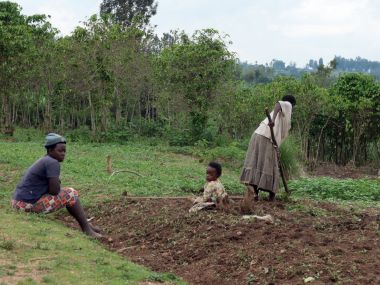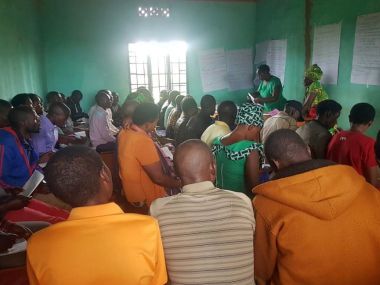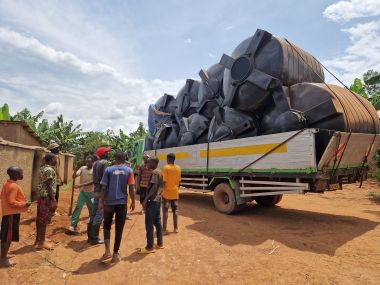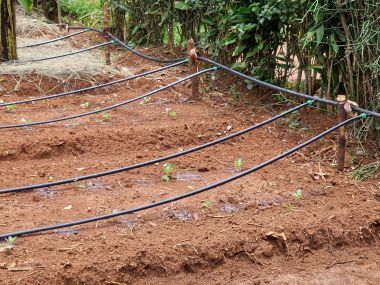Agriculture and Food
Not every farming household is food secure
Although 80% of households in the higher parts of our project area derive their main income from agriculture, 15.5% are not food secure. 26% have no restrictions and the rest are somewhere in between. Food diversity is also limited for many. The land size is often very small and the yield per square metre is low. This is due to a lack of water, a lack of funds to buy fertilisers and pesticides, and often also a lack of knowledge about cultivation techniques.


Part of the harvest spoils due to a lack of storage facilities. Every farm endeavours to sell the surplus immediately, often at a time when everyone is selling and prices are very low. Access to markets is limited.
Two thirds of households have USD 45 or less per month to spend. This means that many are unable to buy what they cannot grow themselves.
Agricultural training
Our experienced trainer organises ten-month training courses for small holder farmers in agro-ecological cultivation techniques. Topics include the production of compost, liquid fertiliser and insecticides from natural and locally available resources.
The training participants are each given a goat or a sheep.


Water and drip irrigation
During the long dry season, hardly any crops are grown at higher altitudes where there is no water. In some years, climate change causes the rainy season to be postponed or even cancelled. Artificial irrigation is therefore important in order to be able to grow crops all year round and develop greater resilience to unfavourable weather patterns. As groundwater cannot be brought to the surface at a reasonable cost, we rely on rainwater storage and water-saving irrigation methods.
In cooperation with the local co-operative bank and the Sparkassenstiftung, large water tanks are made affordable through microfinancing combined with a grant from the Sustainable Villages Foundation. The storage of water in plastic-lined ponds is in preparation. Pilot systems with drip irrigation are intended to show the way to efficient use of the scarce resource of water.


Construction of an agricultural centre with a solar-powered cold storage room
We are building a small agricultural centre with storage rooms for seeds, other inputs and the harvest. The cold storage room, which is kept at low temperatures using a combination of photovoltaics, batteries and ice storage, is particularly important. It is used to store fruit and vegetables. This means that almost nothing spoils and the farmers do not have to sell when prices are at their lowest.
Better access to markets
The agricultural centre is intended to be a central point for buyers. Our project manager supports the farmers in finding new sales markets with better prices.
All our fields of action
News Agriculture & Food

One goat or one sheep for each farmer
11 May 2023
One goat or one sheep for each farmer!
In addition to the distribution of goats/sheep, the agricultural training focused on topics as diverse as hygiene, microfinance and networking with local authorities.

Great progress in agricultural training
17 March 2023
Great progress in agricultural training!
Since December 2022, 50 smallholder farmers have been trained in agricultural techniques with an agroecological approach.

Training of 50 farmers started!
14 December 2022
Training of 50 farmers started!
We started the training of 50 farmers in the pilot villages. Six drip irrigation systems will be built in the course of the project.




